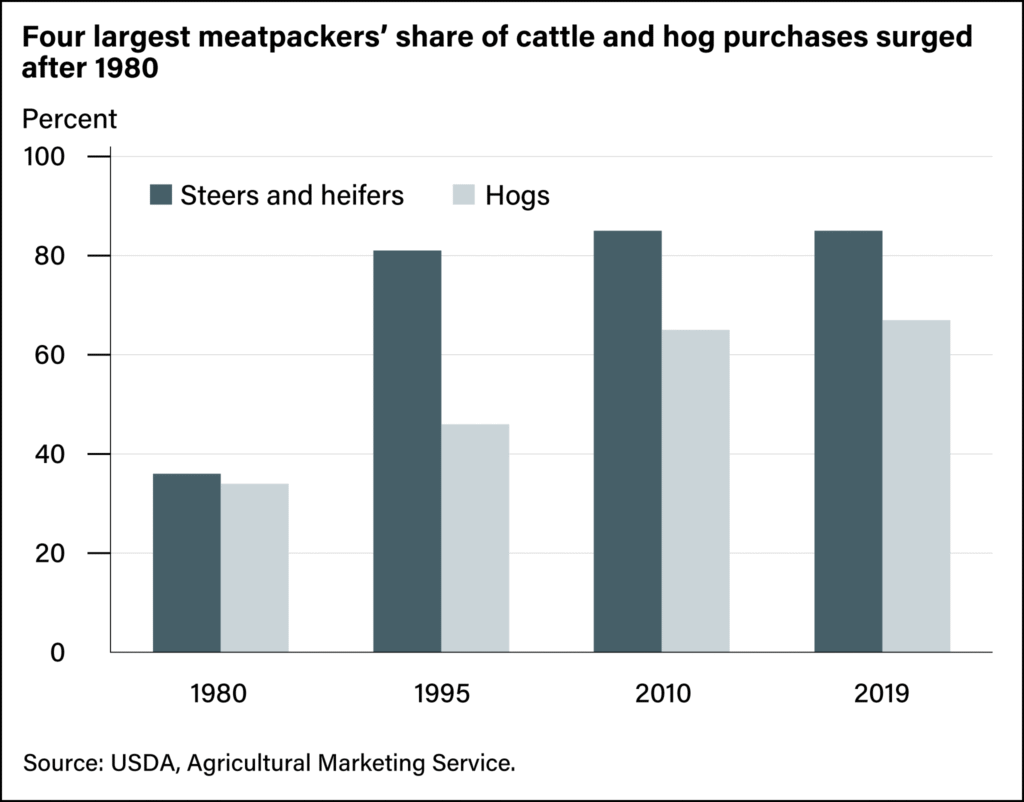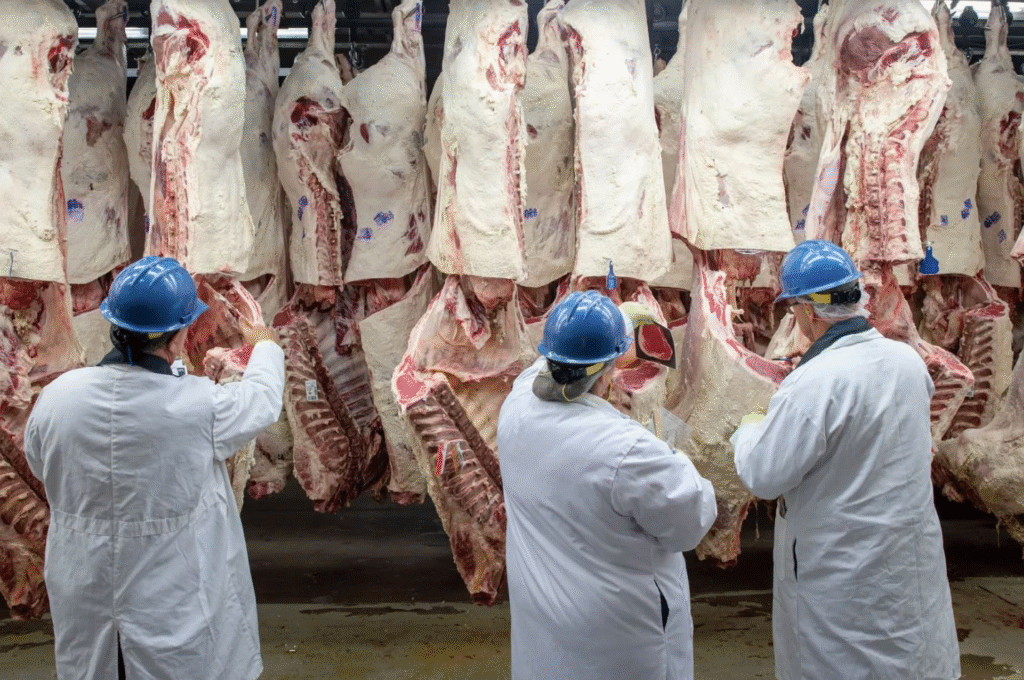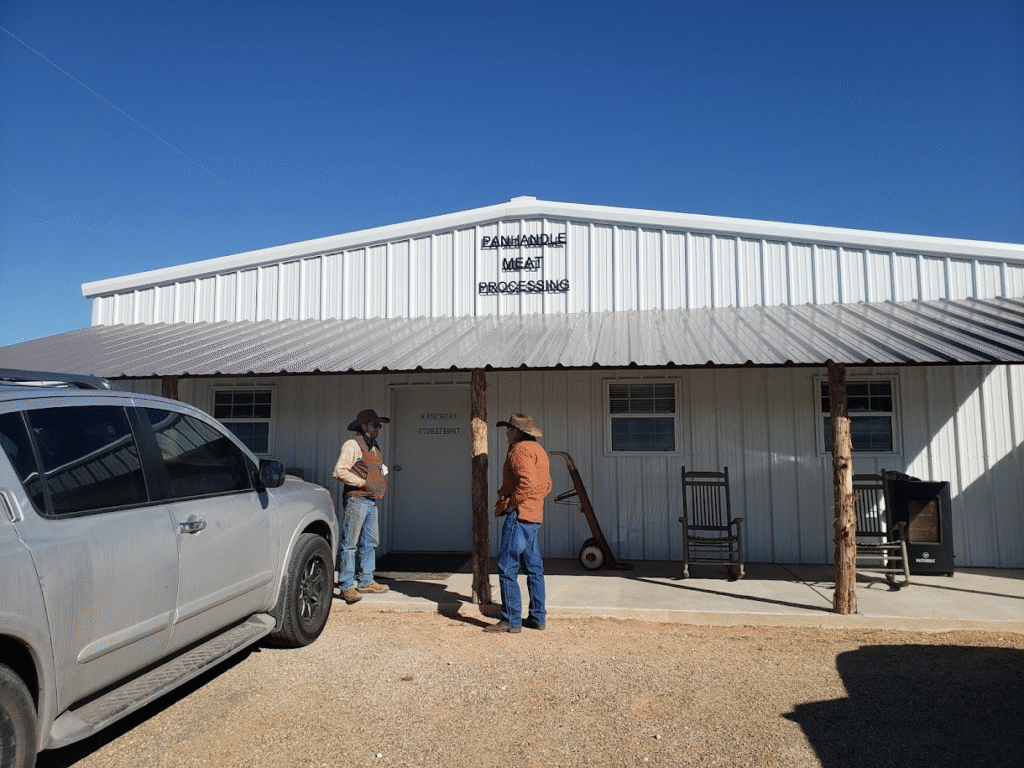Tyson Foods is facing a strike at its Amarillo facility—one of the largest beef processing plants in the country. Teamsters Local 577 has voted 98% in favor of walking out unless demands for higher pay and safer conditions are met.
Mainstream headlines are pitching this as a classic union showdown. But that frame misses the deeper mechanism: this is cartel consolidation disguised as crisis. And whether the strike happens or not, Tyson walks away stronger.
A Shrinking Herd and a Fragile System

America’s beef cattle herd has dropped to its lowest levels since 1951. Drought, high input costs, and market concentration are driving a long-term contraction. While ranchers face financial ruin, the Big Four meatpackers—Tyson, JBS, Cargill, and National Beef—control more than 80% of the slaughter pipeline.


When one of them pauses, it’s not just a plant-level disruption. It’s a national meat shock. Prices surge, kill space vanishes, and independent producers get pushed further to the margins.
Weaponizing Crisis for Control
If the union walks out, the federal government has two immediate pressure valves.
First, the President could invoke the Taft-Hartley Act, forcing workers back for 80 days under the excuse of preserving “national health and safety.” This Cold War law has been used to shut down railroad and steel strikes. Beef qualifies.
Second, the White House could dust off the Defense Production Act—the same law Trump invoked in April 2020 to keep meatpacking plants open during COVID. That order came just two days after Tyson Foods chairman John Tyson published a full-page ad declaring that “the food supply chain is breaking.”
Trump’s Executive Order 13917 gave legal cover to companies like Tyson to remain operational, even as thousands of workers became infected, according to CDC data and a House subcommittee report.
Higher Prices for You, Market Share for Them

Here’s what happens next.
Beef prices rise.
Small processors get boxed out.
Tyson gets to play victim—or savior.
And family-scale ranchers? They lose again. They can’t match the volume. They can’t get inspected. They can’t legally compete.
Even during COVID, USDA rules prevented small processors from selling meat across state lines unless they were federally inspected—a costly hurdle most local plants couldn’t afford. While demand for local meat surged, these small facilities were boxed out by regulations, even as the Big Four packers received legal protection, federal resources, and “critical infrastructure” status under Trump’s Defense Production Act order.
And yet, those same mega-facilities are the ones behind repeated salmonella and E. coli recalls. This isn’t about food safety. It’s about regulatory capture.
The PRIME Act is a Threat to the Big 4
Congress has a solution—but it’s been ignored for years. It’s called the PRIME Act, and it would let farmers sell meat within their own state without being forced through the USDA bottleneck. If passed, it would radically expand local meat infrastructure and strip the Big Four of their stranglehold.
But Tyson’s lobbyists know the threat. And they’ve kept this bill in limbo, year after year.
This strike drama isn’t just a negotiation tactic. It’s a lever—a way to justify federal intervention that protects the existing monopoly and frames it as “essential.”
Cartel Theater in National Security Clothing
The real danger isn’t the union walking—it’s the White House stepping in to “solve” the crisis by locking in the monopoly through executive power. Instead of decentralizing the system, they’ll preserve it under the guise of national security.
That’s how it happened in 2020. That’s how it will happen again.
Once the strike hits, watch for corporate headlines. Watch for D.C. to cry “crisis.” Then watch as small processors, independent ranchers, and local consumers get steamrolled in the name of “stabilizing the food supply.”
Let the Strike Happen. Fund the Small.
Let it happen.
Let Tyson bleed.
Let the market feel the pressure.
Then use the Defense Production Act not to backstop monopolies—but to build the small.
Fast-track the PRIME Act. De-risk regional meat processing. Strip USDA gatekeeping from local producers who never caused the supply chain chaos in the first place.
The era of trusting mega-corporations to feed the nation is over.
More processors.
Less gatekeeping.
That’s the exit strategy.
Don’t Wait for D.C.—Invest in What’s Working

As an Amarillo native and founder of The Beef Initiative, Texas Slim puts it plainly: “It’s time to integrate a community food security system that’s already thriving in the Texas Panhandle.”
That system already exists in Amarillo. It’s not theoretical. It’s practical, profitable, and proven.
Justin Trammell—a local regenerative rancher, processor, and food retailer—put it plainly:
“Small plants don’t need unions run by outside forces. When you value your employees and your customers, you don’t get shut down by strikes or supply chain drama. You keep feeding your community.”
Don’t bail out the monopolies.
Build the parallel economy.




0 Comments